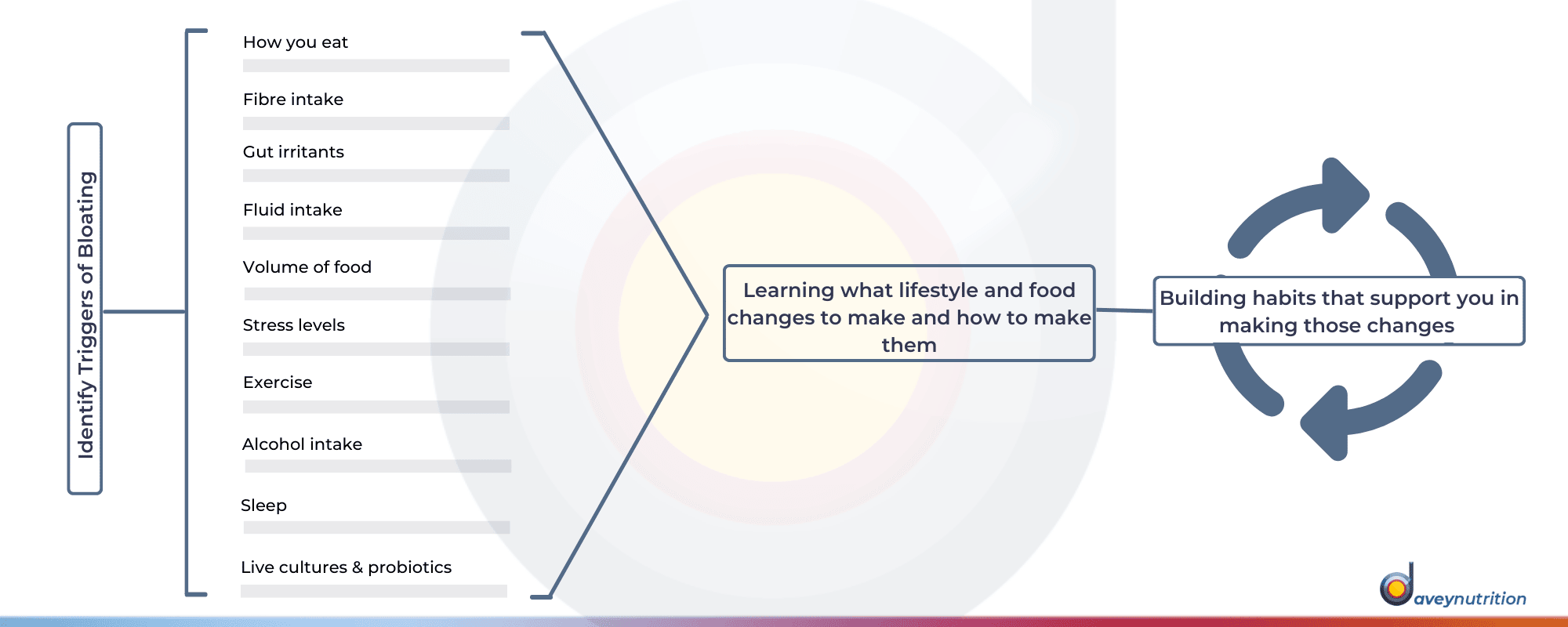What is bloating?
We have all felt bloated at some point in our lives, be it after your 7th spud on Christmas day or having your fill of birthday cake washed down by a can of something fizzy. That feeling of being gassy, full and maybe looking a little round in the tummy, isn’t the most enjoyable. For some of us this is normal and it will reduce in a matter of hours without much thought. For others, this will last much longer and may even occur without even consuming a great amount of food. This occurs in up to approximately 16 -31% of the general population, and in as many as 66-90% of individuals with Irritable Bowel Syndrome (IBS).
Abdominal bloating is when we have symptoms of trapped gas, fullness and pressure in our abdomen. It often (but not always) goes hand in hand with abdominal distension, which is when there is swelling and an increase in abdomen size. These are common side effects of functional gastrointestinal (GI) disorders like IBS, and functional dyspepsia or constipation.
What causes bloating?
Many people presume that bloating is caused by excess gas in the tummy however, it can be for a number of other reasons such as
- Constipation
- Water volume in small intestine
- Food intolerance
- Infection affecting gut microbiota
- Small Intestinal Bacterial Overgrowth (SIBO)
- Altered coordination or visceral hypersensitivity in the GI tract
- Sex hormones ie. progesterone and oestrogen
- Psychological factors ie. anxiety, depression, stress
Bloating is generally more common in women, although men are also affected. In addition, those with IBS-constipation report higher rates of bloating than those with IBS-diarrhoea.
The treatment for bloating depends on the etiology (cause) of it and when working with a health professional, such as your GP or Dietician, this should involve assessing the severity of the condition, receiving education and understanding of the condition as well as learning how to manage it as best as possible.
Before we we look at what you can do to manage bloating, I want you to take a few minutes to answer these questions:

There are a number of therapeutic options available, some of which include dietary and lifestyle changes. Based on our research and experience with helping clients deal with bloating, we have condensed it into 10 factors that commonly contribute to bloating.

If you would like to see our full guide on how you can manage bloating, take a look at this article – Bloating: Management guide – daveynutrition









